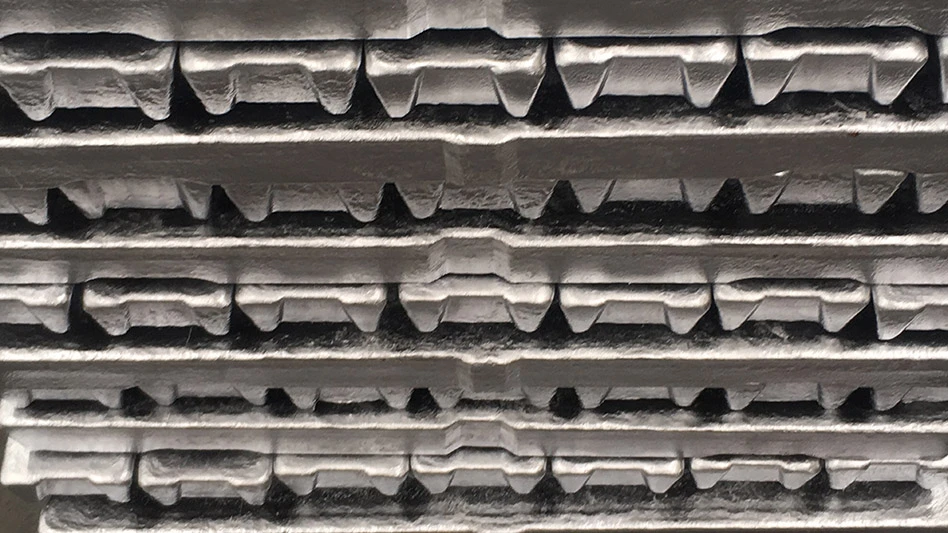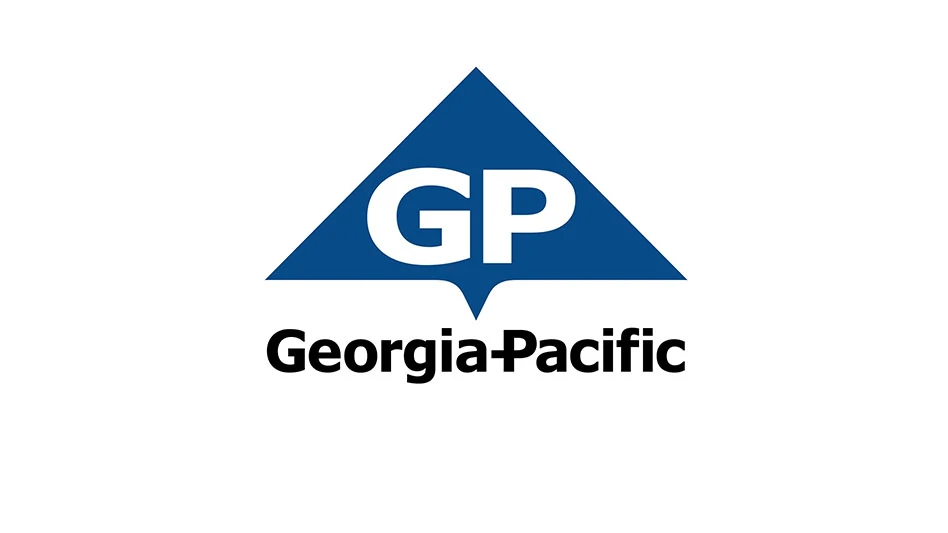 RockTenn, the Norcross, Ga.-based recycler and producer of corrugated and consumer packaging, has earned the respect of its peers in its nearly 40 years of operation under that name. (The company was formed when Tennessee Paper Mills Inc. and Rock City Packaging Inc., owned by Arthur Morris, merged, and its lineage dates back to 1936.) Erik Deadwyler, senior vice president and general manager of RockTenn Recycling, the company’s recycling business segment, says RockTenn has attained this position by adhering to its philosophy of producing quality products as efficiently and cost effectively as possible. He adds that the company’s focus on innovation also helps to create a competitive advantage that has fueled RockTenn’s growth throughout the years.
RockTenn, the Norcross, Ga.-based recycler and producer of corrugated and consumer packaging, has earned the respect of its peers in its nearly 40 years of operation under that name. (The company was formed when Tennessee Paper Mills Inc. and Rock City Packaging Inc., owned by Arthur Morris, merged, and its lineage dates back to 1936.) Erik Deadwyler, senior vice president and general manager of RockTenn Recycling, the company’s recycling business segment, says RockTenn has attained this position by adhering to its philosophy of producing quality products as efficiently and cost effectively as possible. He adds that the company’s focus on innovation also helps to create a competitive advantage that has fueled RockTenn’s growth throughout the years.
Integrated Operations
RockTenn Recycling serves as the supply arm for RockTenn’s mills. “Every ton of paper that goes into a RockTenn recycled paper mill is managed through the recycling business,” Deadwyler says. “In addition, not only are we charged with managing the logistics, the supply and the pricing, we also manage the quality for those mills as well as the inventory for those mills. It is a highly integrated model, as we really work hard at it and are very much focused on it.”
The recycling division handles some 8 million tons of recyclable commodities per year, 250,000 of which are nonfiber items, Deadwyler says. Four million of those tons are comprised of OCC (old corrugated containers), ONP (old newspapers), DLK (double lined kraft), mixed paper and boxboard cuts consumed by RockTenn’s mills. RockTenn Recycling’s 29 recycling plants process 1.7 million tons of the total recyclables handled by the company. The balance of the material is bought and sold by RockTenn Recycling’s brokerage operations, Deadwyler says.
Eight of RockTenn’s recycling plants are single-stream material recovery facilities (MRFs) that handle residential as well as commercial and industrial material, while the remaining 21 plants are paper stock processing plants equipped with balers and minimal sorting capabilities. “These are generally smaller plants that are focused on serving local niche markets,” Deadwyler adds.
Of the remaining 4 million tons of recyclables that RockTenn does not consume internally, he says, the company exports roughly 1 million tons, largely to China. Domestic consumers purchase the balance of the material.
RockTenn Recycling generates in excess of $1 billion in revenue per year, he says, with $100 million coming from the Waste Spend Management Group, which is part of the company’s national accounts team. This group, with clients that include J.C. Penney and Starbucks, helps customers manage their spending on recycling and trash disposal services, Deadwyler says.
Altered Scope
Of the issues currently facing the recycling industry, Deadwyler says two are foremost in his mind: the changing scope and efficiency of single-stream MRFs as well as quality concerns related to digging deeper into the waste stream to extract more recyclables. The second issue has been compounded recently by China’s Operation Green Fence.
“One of the big challenges I see is that the industry is in this dilemma right now where we are trying to go out and source new volume from the waste stream, and we are trying to do that while meeting the quality specifications of both our domestic and international customers,” he says. “We have fairly high recovery rates in the U.S., so it’s really things like single-stream recycling that are giving us the opportunity to capture incremental tons. The recyclables coming into the plants are dirtier, and what the Green Fence has taught us is that the challenge is making sure that the volume we are recovering becomes a marketable commodity that meets the quality requirements both in the U.S. and abroad.”
He says he thinks that single stream is an effective way to collect and process recyclables, adding, “Yet, we have to be able to recover the commodities out of that stream and be able to market them to an end user. The Green Fence has really presented some challenges.”
Deadwyler says that while single-stream processing technology has made many advancements since its introduction more than a decade ago, additional advancements are needed to help processors bridge the quality gap that appears when digging deeper into the waste stream.
Concerning the scope and efficiency of single-stream MRFs, he says, “With single stream a lot of it on the efficiency side is that you can increase your throughput with automation and reduce the actual labor costs associated with processing. We have seen dramatic improvements in what the sorting screens and optical sorters can do.
Grab a Front-Row Seat Greg King, who replaced Erik Deadwyler as senior vice president and general manager of Norcross, Ga.-based RockTenn Recycling, in late August, will be among the speakers addressing attendees at the Paper Recycling Conference & Trade Show, Oct. 16-18 , 2013, in Chicago at the Marriott Magnificent Mile. The conference’s opening keynote session, “The Future of the Industry,” is scheduled to begin at 4 p.m. Wednesday, Oct. 16. King will be among the panelists, who will share their thoughts on the changes affecting the paper and recycling industry segments and the trends that are shaping their businesses and the paper recycling industry overall. He will be joined by Waste Management Recycle America President Bill Caesar and Pioneer International President and CEO Shawn Lavin. Recycling Today Events, headquartered in Richfield, Ohio, in partnership with the Paper Stock Industries (PSI) chapter of the Institute of Scrap Recycling Industries Inc. (ISRI), Washington, D.C., organizes the Paper Recycling Conference & Trade Show. More information is available at https://paperplasticsna.recyclingtodayevents.com. |
“I think the scope over the past decade has changed,” he continues. “Ten years ago, the focus would have been on sorting paper. In light of some of the declining volumes of fiber in the stream, the scope of these systems now is much more about handling multiple commodities efficiently and trying to get the highest recovery that you can get.”
Focused Approach
Deadwyler says RockTenn Recycling is focused on innovation, particularly concerning the organization of the business.
“As one of the largest buyers and sellers of recovered fiber in the U.S.,” he says, “we have taken steps to create a very efficient, customer-focused transaction platform.”
RockTenn has established a 100-person trading floor in Atlanta that supports all of its brokerage transactions. All of RockTenn’s traders are on the same operating system, and managers, including Deadwyler, also have offices on the trading floor.
“Following the Smurfit-Stone acquisition (which was finalized in mid-2011), we had multiple systems and a lot of people in the field supporting our brokerage transactions,” Deadwyler says. “So this is a great opportunity to create efficiencies by centralizing that activity. Our business is a fairly real-time business with a lot of information that needs to be exchanged. Having this very open work environment allows people to interact quickly and efficiently, and that has allowed us to respond better to market conditions and make better decisions.” He adds, “This really allows us to operate efficiently and manage all of the 8 million tons a year that we handle.”
RockTenn Recycling also prefers to take a long-term view of the industry, Deadwyler says, focusing on being a low-cost producer of quality secondary commodities. “As part of that strategy, we are going to continue to invest in new technology at strategic plant locations,” he says, noting the company’s recent investment at its Atlanta MRF, a single-stream facility that includes a drum feeder, triple-deck OCC screen, fiber polishing screens, magnets, eddy currents and optical sorters. “In addition, we’re going to exit our nonstrategic facilities.”
In 2012 RockTenn closed six collection facilities, according to the company’s “2012 Annual Report,” as part of a reorganization of its recycling operations. Deadwyler led this reorganization, which took place in September and October of 2012 and removed about $8 million per year in fixed overhead costs by reducing and redeploying staffing. The company also closed underperforming and nonstrategic recycling plants. Many of RockTenn’s remaining recycling facilities are strategically located near the company’s recycled paperboard and containerboard mills, which helps to ensure supply availability at reduced shipping costs, according to RockTenn.
Deadwyler says RockTenn tries not to be distracted by short-term fluctuations in the industry. “You are always going to have short-term noise in the market,” he says, “with prices going up or down and different conditions; but, we are really just focusing on the core strategic principles of being low cost and efficient in how we run the business.”
Across all of RockTenn Recycling’s MRFs, the company focuses on producing quality products, Deadwyler says. “If that happens, you earn respect and a reputation in the marketplace of being a high-quality shipper and you can ship to all customers in all markets.”
This approach helps to make regulations such as China’s Operation Green Fence a moot point, he adds.
However, mixed grades of paper and plastic continue to draw the attention of Chinese customs officials, regardless of how well-prepared the material is. “The lower-end quality product that comes through some of our operations is where the challenge has been,” he says. Deadwyler adds that when it comes to this material, RockTenn has been able to find alternative markets as well as to clean up the material further. “We’ve been looking at both alternatives depending on the capabilities of the plant as well as the other options. But I think the core issue is that we have to produce a high-quality product.”
Deadwyler, who started in the industry as a recycling coordinator for Independence, Mo., and later held a position with Enron’s pulp and paper trading group, has been with RockTenn since 2002. He took over the recycling business segment in 2006. “At the time we were much smaller than we are today, but we were a very profitable, good size recycling business,” Deadwyler says. “With the acquisition of Smurfit-Stone’s larger recycling business in 2011,” he continues, “we now have a great opportunity because we have the size and scope that came over with the acquisition to build what I believe will be an industry leading recycling business.”
The author is managing editor of Recycling Today and can be contacted via email at dtoto@gie.net.
Get curated news on YOUR industry.
Enter your email to receive our newsletters.

Explore the September 2013 Issue
Check out more from this issue and find your next story to read.
Latest from Recycling Today
- OnePlanet Solar Recycling closes $7M seed financing round
- AMCS launches AMCS Platform Spring 2025 update
- Cyclic Materials to build rare earth recycling facility in Mesa, Arizona
- Ecobat’s Seculene product earns recognition for flame-retardant properties
- IWS’ newest MRF is part of its broader strategy to modernize waste management infrastructure
- PCA reports profitable Q1
- British Steel mill subject of UK government intervention
- NRC seeks speakers for October event





